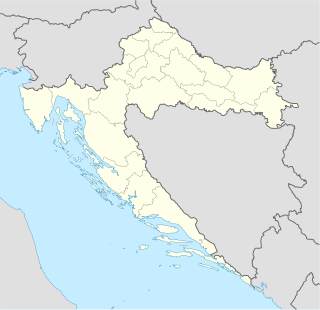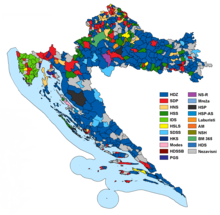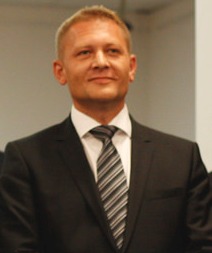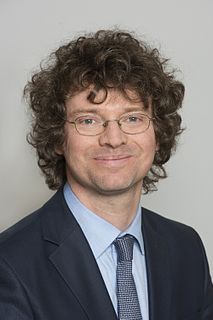| Croatian local elections, 2017 |
|---|
| City Council | Mayor |
|---|
| City | Plurality | Turnout | Mayor | Turnout | Note |
|---|
| Bakar | | HDZ (56,25%) | 45,78% | | Tomislav Klarić, HDZ (70,78%) | 45,78% | first round win |
| Beli Manastir | | HDZ, HSU (47,55%) | 44,64% | | Tomislav Rob, HDZ (51,65%) | 44,64% | first round win |
| Belišće | | Ind. (60,28%) | 48,65% | | Dinko Burić, Ind. (71,06%) | 48,64% | first round win |
| Benkovac | | HDZ, HSP (50,16%) | 30,76% | | Tomislav Bulić, HDZ (49,15%) | 30,76% | first round win |
| Biograd na Moru | | HDZ (52,52%) | 52,57% | | Ivan Knez, HDZ, HSU (54,68%) | 52,57% | first round win |
| Bjelovar | | HDZ (27,28%) | 38,13% | | Dario Hrebak, HSLS (64.25%) | 29.15% | runoff election |
| Buje | | IDS (41,77%) | 40,13% | | Fabrizio Vižintin, IDS (49.54%) | 41.58% | runoff election |
| Buzet | | IDS, HSU (51,46%) | 55,03% | | Siniša Žulić, IDS (55,54%) | 55,03% | first round win |
| Cres | | HNS, SDP, PGS, HSS, HSU (29,04%) | 58,20% | | Kristijan Jurjanko, HNS (51.14%) | 50.78% | runoff election |
| Crikvenica | | HDZ, HSP AS, HSS, HSLS (46,44%) | 42,62% | | Damir Rukavina, HDZ (50,31%) | 42,60% | first round win |
| Čabar | | SDP (32,56%) | 49,07% | | Kristijan Rajšel, SDP (65.29%) | 34.73% | runoff election |
| Čakovec | | SDP, HSS, HSU, MDS, HL (43,03%) | 43,22% | | Stjepan Kovač, SDP (56,23%) | 44,21% | first round win |
| Čazma | | HSS (37,07%) | 49,61% | | Dinko Pirak, HSS (56,15%) | 49,70% | first round win |
| Daruvar | | HDZ, HSU, HSS, HSLS (34,66%) | 48,22% | | Damir Lneniček, HDZ (55.03%) | 46.84% | runoff election |
| Delnice | | Ind. (33,26%) | 49,74% | | Ivica Knežević, Ind. (52.09%) | 40.94% | runoff election |
| Donja Stubica | | SDP, HNS, HSU,HL (46,16%) | 48,20% | | Nikola Gospočić, SDP (58,50%) | 48,35% | first round win |
| Donji Miholjac | | Ind. (33,52%) | 39,92% | | Goran Aladić, Ind. (57.15%) | 35.26% | runoff election |
| Drniš | | HDZ (47,14%) | 53,57% | | Josip Begonja, HDZ (52,12%) | 53,69% | first round win |
| Dubrovnik | | HDZ (32,76%) | 47,63% | | Mato Franković, HDZ (58.45%) | 39.77% | runoff election |
| Duga Resa | | HDZ (30,45%) | 51,16% | | Tomislav Boljar, HSS (60,99%) | 47.55% | runoff election |
| Dugo Selo | | HDZ (32,33%) | 36,08% | | Nenad Panian, HNS (51.14%) | 30.73% | runoff election |
| Đakovo | | HDZ (38,92%) | 44,34% | | Marin Mandarić, HDZ (50.93%) | 47.52% | runoff election |
| Đurđevac | | Ind. (64,74%) | 51,83% | | Zlatko Mađeruh, Ind. (60,19%) | 51,83% | first round win |
| Garešnica | | HDZ, HSLS (43,62%) | 43,42% | | Josip Bilandžija, HDZ (55,27%) | 43,42% | first round win |
| Glina | | HDZ (45,72%) | 45,83% | | Stjepan Kostanjević, HDZ (53,81%) | 45,89% | first round win |
| Gospić | | HDZ, HSS, HSP AS (48,32%) | 61,56 | | Karlo Starčević, HSP (50.14%) | 66.68% | runoff election |
| Grubišno Polje | | HDZ (45,20%) | 53,00% | | Zlatko Mađeruh, HDZ (54,11%) | 53,11% | first round win |
| Hrvatska Kostajnica | | HDZ (59,64%) | 59,59% | | Dalibor Bišćan, HDZ (62,29%) | 59,94% | first round win |
| Hvar | | HDZ (27,46%) | 48,36% | | Rikardo Novak, Ind. (52.73%) | 43.31% | runoff election |
| Ilok | | HDZ, HSLS (59,64%) | 49,43% | | Marina Budimir, Ind. (58.65%) | 46.48% | runoff election |
| Imotski | | HDZ, HSS, HSP AS, BUZ (50,68%) | 51,92% | | Ivan Budalić, HDZ (52.17%) | 61.18% | runoff election |
| Ivanec | | HNS, HSU (41,28%) | 48,36% | | Milorad Batinić, HNS (51,26%) | 48,36% | first round win |
| Ivanić-Grad | | HDZ, HSLS, NS-R (42,38%) | 45,70% | | Javor Bojan Leš, HDZ (58,94%) | 45,70 | first round win |
| Jastrebarsko | | SDP, HNS, HSU (45,74%) | 55,01% | | Zvonimir Novosel, SDP (54,64%) | 55,01% | first round win |
| Karlovac | | HDZ, HSLS (39,69%) | 44,33% | | Damir Mandić, HDZ (52.82%) | 33.63% | runoff election |
| Kastav | | HNS, SDP, PGS, HSS, HSU, ARS (41,93%) | 37,76% | | Matej Mostarac, SDP (50.07%) | 31.90% | runoff election |
| Kaštela | | HDZ, HSS (48,26%) | 32,42% | | Denis Ivanović, HDZ (55,04%) | 32,43% | first round win |
| Klanjec | | SDP, ZDS, HNS,HSU, HL (53,63%) | 56,03% | | Zlatko Brlek, SDP (56,19%) | 56,03% | first round win |
| Knin | | HDZ (40,06%) | 48,91% | | Marko Jelić, Ind. (58.65%) | 56.55% | runoff election |
| Komiža | | SDP, HSS, HNS, (47,98%) | 46,49% | | Tonka Ivčević, SDP (61,19%) | 46,49% | first round win |
| Koprivnica | | SDP, HSS, HNS,HSU (46,84%) | 40,91% | | Mišel Jakšić, SDP (59.24%) | 38.34% | runoff election |
| Korčula | | HDZ, HSS, HSP AS, HSLS (43,40%) | 60,91% | | Andrija Fabris, HDZ (54,70%) | 60,90% | first round win |
| Kraljevica | | HDZ, HSLS (52,24%) | 55,29% | | Dalibor Čandrlić, HDZ (52,86%) | 55,34% | first round win |
| Krapina | | HDZ, A-HSS 1904, HSS, ZDS (51,84%) | 58,48% | | Zoran Gregurović, HDZ, (58,63%) | 58,47% | first round win |
| Križevci | | Ind. (32,59%) | 44,36% | | Mario Rajn, Ind. (61.58%) | 48.42% | runoff election |
| Krk | | PGS, SDP, HNS (58,25%) | 32,66% | | Darijo Vasilić, PGS (85,97%) | 32,63% | first round win |
| Kutina | | HDZ, HSP, HSP AS, HSLS, HSU (38,76%) | 44,70% | | Zlatko Bbaić, HDZ (49.56%) | 45.33% | runoff election |
| Kutjevo | | HDZ, HDSSB, HSS (72,46%) | 38,43% | | Josip Budimir, HDZ (77,85%) | 38,43% | first round win |
| Labin | | IDS, HNS, HSU (49,81%) | 45,09% | | Valter Glavičić, IDS (59,17%) | 45,09% | first round win |
| Lepoglava | | HNS, SDP, HSU (43,41%) | 42,80% | | Marijan Škvarić, HNS (51.69%) | 42.30% | runoff election |
| Lipik | | HDZ (64,17%) | 49,02% | | Vinko Kasana, HDZ (77,55%) | 49,19% | first round win |
| Ludbreg | | SDP, HNS, HSU, HL (50,82%) | 48,47% | | Dubravko Bilić, SDP (58,78%) | 48,48% | first round win |
| Makarska | | HDZ (38,33%) | 43,37% | | Jure Brkan, HDZ (50.88%) | 42.55% | runoff election |
| Mali Lošinj | | HDZ, HRAST, HSS, HKDU, SU (36,02%) | 49,21% | | Ana Kučić, HDZ (50,79%) | 49,19% | first round win |
| Metković | | MOST (40,65%) | 65,38% | | Dalibor Milan, HDZ (49.83%) | 67.10% | runoff election |
| Mursko Središće | | HDZ, HSS, HDS, HSLS (50,38%) | 43,17% | | Dražen Srpak, HDZ (62,11%) | 43,23% | first round win |
| Našice | | HDZ (52,74%) | 41,55% | | Josip Miletić, HDZ (50,68%) | 41,55% | first round win |
|
| Nin | | HDZ (52,52%) | 53,45% | | Emil Ćurko, HDZ (58,24%) | 53,48% | first round win |
| Nova Gradiška | | SDP, HL (50,76%) | 46,00% | | Vinko Grgić, SDP (62,04%) | 46,01% | first round win |
| Novalja | | Ind. (51,59%) | 65,07% | | Ante Dabo, Ind. (57,93%) | 65,12% | first round win |
| Novi Marof | | HDZ, HSS, HSU (58,11%) | 48,33% | | Siniša Jenkač, HDZ (60,74%) | 48,35% | first round win |
| Novi Vinodolski | | HDZ, HSS (56,10%) | 54,79% | | Velimir Piškulić, HDZ (58,11%) | 54,79% | first round win |
| Novigrad | | IDS (70,59%) | 41,26% | | Ante Milos, IDS (91,79%) | 41,26% | first round win |
| Novska | | HDZ, HSS, (55,58%) | 48,51% | | Marin Piletić, HDZ (53,28%) | 49,03% | first round win |
| Obrovac | | HDZ (42,04%) | 45,42% | | Ante Župan, HDZ (57,66%) | 45,40% | first round win |
| Ogulin | | HDZ, HSS, HSLS, HSU (37,27%) | 52,53% | | Dalibor Domitrović, SDP (49.75%) | 47.65% | runoff election |
| Omiš | | Ind. (45,17%) | 49,59% | | Ivo Tomasović, Ind. (53,81%) | 49,60% | first round win |
| Opatija | | SDP, HNS, IDS, HSU, PGS, NS-R, HSS (36,49%) | 47,04% | | Ivo Dujmić, Ind. (45.95%) | 44.75% | runoff election |
| Opuzen | | HDZ, HSLS (50,89%) | 63,32% | | Ivo Mihaljević, HDZ (52,34%) | 63,32% | first round win |
| Orahovica | | HDZ (39,26%) | 62,03% | | Ana-Marija Petin, HSS (49.87%) | 62.49% | runoff election |
| Oroslavje | | HDZ, HSS BR, HSP AS, ZS (37,66%) | 48,50% | | Emil Gredičak, HDZ (56.46%) | 49.29% | runoff election |
| Osijek | | SDP, HNS, HSS, ANU (23,23%) | 40,65% | | Ivan Vrkić, Ind. (62.74%) | 34.33% | runoff election |
| Otočac | | HDZ, HSU, HSP, HSP AS, HSLS (52,84%) | 60,38% | | Stjepan Kostelac, Ind. (49,52% | 60,43% | first round win |
| Otok | | HDZ, HSS, HSP AS (57,73%) | 49,55% | | Josip Šarić, HDZ (57,69%) | 49,59% | first round win |
| Ozalj | | HDZ (37,72%) | 51,33% | | Gordana Lipšinić, HDZ (55.06%) | 48.69% | runoff election |
| Pag | | HDZ (25,94%) | 65,54% | | Ante Fabijanić, MODES (50.60%) | 63.70% | runoff election |
| Pakrac | | HDZ (53,79%) | 41,51% | | Anamarija Blažević, HDZ (62,48%) | 41,68% | first round win |
| Pazin | | IDS, HSU, HNS (46,53%) | 47,37% | | Renato Krulčić, IDS (58.44%) | 36.79% | runoff election |
| Petrinja | | HDZ, HSP, HSP AS, HSLS, HKS, UDU (41,35%) | 44,50% | | Renato Krulčić, NS-R (53.07%) | 46.37% | runoff election |
| Pleternica | | HDZ, HSU (48,60%) | 53,78% | | Anotnija Jozić, HDZ (50,69%) | 53,90% | first round win |
| Ploče | | HDZ, HSLS (40,04%) | 65,36% | | Mišo Krstičević, SDP (53.95%) | 69.31% | runoff election |
| Popovača | | HDZ (30,13%) | 41,73% | | Josip Mišković, HDZ (57,75%) | 41,74% | first round win |
| Poreč | | IDS (47,93%) | 46,99% | | Loris Peršurić, IDS (57,31%) | 46,99% | first round win |
| Požega | | HDZ, HSU (45,55%) | 51,21% | | Darko Puljašić, HDZ (61.49%) | 41.63 | runoff election |
| Pregrada | | SDP, ZS, HL (65,81%) | 49,44% | | Marko Vešligaj, SDP (71,46%) | 49,46% | first round win |
| Prelog | | HDZ, HSS (57,64%) | 49,37% | | Ljubomir Kolarek, HDZ (63,58%) | 49,57 | first round win |
| Pula | | IDS, HNS, ISU, Zeleni (48,90%) | 37,31% | | Boris Miletić, IDS (51,83%) | 37,32% | first round win |
| Rab | | HDZ, HSS, RPS (46,12%) | 57,91% | | Nikola Grgurić, HDZ (56,58%) | 57,91% | first round win |
| Rijeka | | SDP, PGS, HSU, IDS, HL, SDSS, HSS (37,78%) | 36,63% | | Vojko Obersnel, SDP (55.59%) | 28.42% | runoff election |
| Rovinj | | IDS (54,65%) | 38,68% | | Marko Paliaga, IDS (62,25%) | 38,68% | first round win |
| Samobor | | HSS, SDP (52,76%) | 43,37% | | Krešo Beljak, HSS (62,92%) | 43,58% | first round win |
| Senj | | HDZ, HSP AS, HSU, NS-R (51,36%) | 63,58% | | Sanjin Rukavina, HDZ (63.07%) | 59.89% | runoff election |
| Sinj | | HDZ (32,74%) | 48,00% | | Kristina Križanac, Ind. (50.37%) | 47.91% | runoff election |
| Sisak | | SDP, HL, HSS BR (31,71%) | 47,10% | | Kristina Ikić Baniček, SDP (55.80%) | 43.20% | runoff election |
| Skradin | | HDZ (49,36%) | 42,12% | | Antonijo Brajković, HDZ (63,68%) | 41,98% | first round win |
| Slatina | | HDZ, HSP, HSLS, SU (40,82%%) | 45,35% | | Denis Ostrošić, SDP (53.47%) | 43.71% | runoff election |
| Slavonski Brod | | Ind. (34,97%) | 39,10% | | Mirko Duspara, Ind. (54.17%) | 39.46% | runoff election |
| Slunj | | HDZ (59,23%) | 42,01% | | Jure Katić, HDZ (60,79%) | 42,01% | first round win |
| Solin | | HDZ, HČSP, HDS, HSU (55,07%) | 44,36% | | Dalibor Ninčević, HDZ (57,14%) | 44,35% | first round win |
| Split | | HDZ, HSLS, HSS (25,31%) | 45,50% | | Andro Krstulović Opara, HDZ (46.19%) | 38.07% | runoff election |
| Stari Grad | | HDZ (38,06%) | 53,51% | | Antonio Škarpa, Ind. (49,65%) | 63,35% | third round election |
| Supetar | | SDP, HSU (48,96%) | 56,82% | | Ivana Marković, SDP (61,14%) | 56,82% | first round win |
| Sveta Nedelja | | HDZ (26,54%) | 47,08% | | Dario Zurovec, Ind. (57.73%) | 43.43% | runoff election |
| Sveti Ivan Zelina | | HDZ, HSLS, HSU (24,46%) | 44,25% | | Hrvoje Košćec, HNS (53.69%) | 42.89% | runoff election |
| Šibenik | | HDZ (45,62%) | 43,20% | | Željko Burić, HDZ (69.78%) | 30.70% | runoff election |
| Trilj | | HDZ, HDS (68,36%) | 42,88% | | Ivan Šipić, HDZ (79,99%) | 42,84% | first round win |
| Trogir | | HDZ, HSP (40,44%) | 48,12% | | Ante Bilić, SDP (49.06%) | 47.51% | runoff election |
| Umag | | SDP, HSU, HNS, SDA, SDSS (37,82%) | 42,82% | | Vili Bassanese, SDP (52,38%) | 42,82% | first round win |
| Valpovo | | HDZ, HSS (37,26%) | 48,63% | | Matko Šutalo, Ind. (54.80%) | 53.85% | runoff election |
| Varaždin | | Ind. (28,92%) | 49,30% | | Ivan Čehok, Ind. (68.50%) | 41.56% | runoff election |
| Varaždinske Toplice | | HDZ, HSLS (51,79%) | 54,64% | | Deagica Ratković, HDZ (56,79%) | 54,70% | first round win |
| Velika Gorica | | HDZ, HSLS, HSU (39,47%) | 41,20% | | Dražen Barišić, HDZ (61.11%) | 29.29% | runoff election |
| Vinkovci | | HDZ, HSU, BUZ (41,09%) | 45,05% | | Ivan Bosančić, HDZ (51.10%) | 40.17% | runoff election |
| Virovitica | | HDZ, HSLS, HSP AS (57,51%) | 46,88% | | Ivica Kirin, HDZ [[(60,50%) | 46,89% | first round win |
| Vis | | HDZ (39,26%) | 60,13% | | Ivo Radica, HDZ (51,71%) | 60,13% | first round win |
| Vodice | | HDZ (46,30%) | 46,76% | | Nelka Tomić, HDZ (56.01%) | 45.63% | runoff election |
| Vodnjan | | IDS, ISU, HNS (68,28%) | 38,47% | | Klaudio Vitasović, IDS (63,22%) | 38,49% | first round win |
| Vrbovec | | SDP, HL (27,65%) | 51,08% | | Denis Kralj, SDP (63.51%) | 48.97% | runoff election |
| Vrbovsko | | Ind. (36,18%) | 51,88% | | Dražen Mufić, Ind. (53,76%) | 52,04% | first round win |
| Vrgorac | | NLM (44,71%) | 67,29% | | Ante Pranić, NLM (60,68%) | 67,33% | first round win |
| Vrlika | | HDZ (51,71%) | 60,82% | | Jure Plazonić, HDZ (54.51%) | 61.91% | first round win |
| Vukovar | | HDZ, HKS (54,23%) | 41,14% | | Ivan Penava, HDZ (61,72%) | 41,18% | first round win |
| Zabok | | SDP, HSU, HNS,HL, HSS BR (43,57%) | 52,67% | | Ivan Hanžek, SDP (55,16%) | 52,71% | first round win |
| Zadar | | HDZ, HSP AS, HSU, HRAST, NS-R (46,47%) | 38,90% | | Branko Dukić, HDZ (51,20%) | 38,91 | first round win |
| Zaprešić | | HDZ, HSS, HSU, BM 365, HSLS (38,34%) | 41,95% | | Željko Turk, HDZ (57.02%) | 33.00% | runoff election |
| Zlatar | | SDP, HSU, HNS,HL (59,17%) | 51,08% | | Jasenka Auguštan-Pentek, SDP (74,19%) | 44,23% | first round win |
| Županja | | HDZ (50,82%) | 36,44% | | Davor Miličević, HDZ (54,19%) | 36,45 | first round win |















